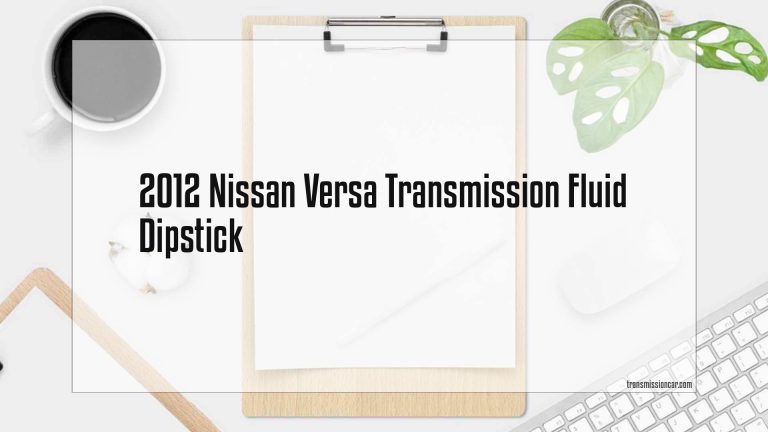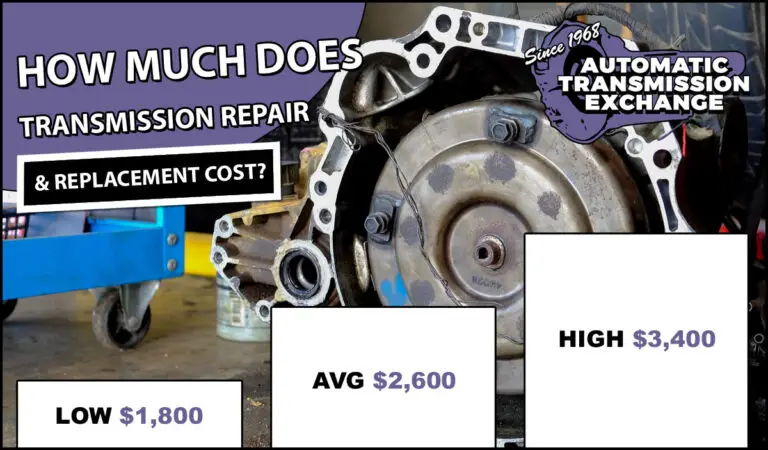Decoding the Eaton Transmission Fault Code 88: A Comprehensive Guide
Fault Code 88 in Eaton Transmissions indicates a specific malfunction within the transmission system. It’s crucial to address this code promptly as…
Fault Code 88 in Eaton Transmissions indicates a specific malfunction within the transmission system. It’s crucial to address this code promptly as it can lead to significant transmission issues, especially in Kenworth trucks.
Regular checks and understanding the code’s implications can prevent potential damage and costly repairs.
Eaton transmissions have been a cornerstone in the automotive industry for years. Founded in 1911, Eaton has consistently delivered innovative and reliable transmission solutions tailored to meet the evolving needs of vehicles.
From heavy-duty trucks to high-performance cars, Eaton’s transmissions are designed to enhance drivability, improve fuel efficiency, and boost overall vehicle performance.
- You Can See: Eaton transmission bell housing torque specs.
Importance of Understanding Fault Codes
In the realm of automotive diagnostics, fault codes serve as the initial point of contact between a mechanic and a vehicle’s issue. These codes, generated by the vehicle’s onboard computer system, provide insights into potential malfunctions within the vehicle.
By understanding these codes, we can pinpoint the root cause of a problem, saving both time and money. Instead of blindly troubleshooting, mechanics can address the exact issue, ensuring a more efficient repair process.
2008 KENWORTH T660 AUTOMATIC TRANSMISSION ERROR CODE 88 AND ERROR CODE 71
Understanding Eaton Transmission Fault Code 88
What is Fault Code 88?
Fault Code 88 is a specific diagnostic trouble code (DTC) associated with Eaton transmissions. When this code is triggered, it signifies a particular issue or malfunction within the transmission system.
While the exact nature of the problem can vary, the code often points to issues related to transmission fluid pressure, sensor malfunctions, or internal mechanical failures.
Common Reasons for the Appearance of this Code
Fault Code 88 can be triggered by a variety of factors. Some of the most common causes include:
Transmission Fluid Issues: Low fluid levels or contaminated fluid can lead to inadequate lubrication, causing the code to appear.
Sensor Malfunctions: Faulty sensors, especially those monitoring fluid pressure or temperature, can trigger this code.
Mechanical Failures: Internal components like gears, bearings, or clutches showing signs of wear can result in this fault code.
Markdown Data Table:
| Potential Cause | Potential Solution |
| Low Transmission Fluid Level | Check and refill transmission fluid to the recommended level. |
| Contaminated Transmission Fluid | Perform a complete transmission fluid change. |
| Faulty Fluid Pressure Sensor | Replace the sensor and recalibrate the system. |
| Worn-out Internal Components | Inspect and replace damaged parts. |
| Drain Plug | M14 |
Implications of Ignoring this Fault Code
Disregarding Fault Code 88 is akin to ignoring a ticking time bomb within the transmission system. The initial symptoms might be subtle, like erratic gear shifts or a slight delay in acceleration.
However, if left unaddressed, these issues can escalate, leading to:
- Complete Transmission Failure: The transmission might refuse to shift gears or even engage, rendering the vehicle immobile.
- Decreased Fuel Efficiency: A malfunctioning transmission can lead to increased fuel consumption.
- Costly Repairs: Minor issues can snowball into major problems, leading to expensive repair or replacement costs.
- You Can See: Freightliner automatic transmission stuck in gear
Kenworth’s Association with Fault Code 88
Kenworth, a renowned name in the trucking industry, has its unique set of challenges when it comes to transmission fault codes. Specifically, the Kenworth fault code 88 is a manifestation of issues within the Eaton transmission system used in these trucks.
While the underlying problems might mirror those in other vehicles, Kenworth trucks have specific nuances that mechanics and truck owners should be aware of.
- You Can See: Peterbilt 579 automatic transmission problems
How Kenworth t680 Code 88 Relates to Eaton Transmissions
The Kenworth t680, a flagship model from Kenworth, predominantly uses Eaton transmissions. When code 88 appears on a t680, it’s directly linked to the Eaton transmission system.
The symbiotic relationship between the Kenworth t680 and Eaton transmissions means that any fault in the transmission will have a pronounced effect on the truck’s performance. Understanding this relationship is crucial for effective troubleshooting and repair.

Common Issues in Kenworth Trucks Leading to this Code
Kenworth trucks, while robust and reliable, are not immune to transmission issues. Some common problems in these trucks that can lead to the appearance of fault code 88 include:
Overheating: Prolonged hauls or heavy loads can lead to transmission overheating in Kenworth trucks.
Wear and Tear: Given the heavy-duty nature of these trucks, components can wear out faster, triggering the fault code.
Sensor Failures: Kenworth trucks have intricate sensor systems, and any malfunction can lead to code 88.
Resetting Eaton Fuller Automatic Transmission
Steps on How to Reset Eaton Fuller Automatic Transmission
Resetting the Eaton Fuller automatic transmission can often resolve minor glitches and restore optimal performance. Here’s a step-by-step guide to help you through the process:
Start with Safety: Ensure the vehicle is on a level surface and the parking brake is engaged.
Turn the Ignition On Without starting the engine, turn the ignition key to the ‘ON’ position.
Locate the Reset Button: On most Eaton Fuller transmissions, there’s a reset button or switch, typically found near the transmission control module.
Press and Hold: Press and hold the reset button for about 10 seconds.
Monitor the Dashboard: Look for any flashing lights or indicators on the dashboard. Once they stop, the reset process is complete.
Turn Off the Ignition: Turn the ignition key to the ‘OFF’ position.
Start the Engine: Turn on the vehicle and check for the fault code. If it’s cleared, the reset was successful.
- You Can See: how to reset Eaton Fuller automatic transmission.
Importance of Resetting the Transmission
Resetting the transmission isn’t just a troubleshooting step; it’s a preventive measure. Here’s why it’s crucial:
Clears Minor Glitches: Just like rebooting a computer, resetting can clear minor software glitches in the transmission control module.
Improves Performance: A reset can often restore the transmission’s performance, ensuring smoother gear shifts and optimal fuel efficiency.
Avoids Costly Repairs: Addressing issues early on by resetting can prevent minor problems from escalating into major repairs.
When to Seek Professional Help
While resetting can resolve many issues, it’s not a panacea. If the fault code reappears or if the transmission exhibits persistent issues, it’s time to consult a professional. Ignoring persistent problems can lead to more significant damages and higher repair costs in the long run.
Troubleshooting and Solutions
Detailed Solutions to Address Fault Code 88
When confronted with Fault Code 88, it’s essential to approach the issue methodically. Here’s a breakdown of potential solutions based on the root cause:
Transmission Fluid Issues:
Check Fluid Levels: Ensure the transmission fluid is at the recommended level. If low, refill with the appropriate type and quantity.
Inspect for Contaminants: If the fluid appears dirty or has debris, it’s time for a change. Drain the old fluid, replace the filter, and refill it with fresh transmission fluid.
- You Can See: Dexron 2 transmission fluid equivalent
Sensor Malfunctions:
Run a Diagnostic Test: Use a diagnostic tool to pinpoint which sensor is malfunctioning.
Replace Faulty Sensors: Once identified, replace the faulty sensor and recalibrate the system if necessary.
Product Recommendation: [Link to a recommended sensor replacement kit from Amazon suitable for Eaton transmissions].
Mechanical Failures:
Inspect Internal Components: Check for visible wear and tear on gears, bearings, and clutches.
Seek Professional Help: If internal components are damaged, it’s best to consult a professional for replacement or repair.
Preventive Measures to Avoid Recurrence
Prevention is always better than cure. Here are some measures to ensure the longevity of the Eaton transmission and prevent the recurrence of Fault Code 88:
Regular Maintenance: Schedule routine checks and maintenance for the transmission system.
Stay Updated: Ensure the transmission control module firmware is up-to-date. Manufacturers often release updates to fix known issues.
Avoid Overloading: Consistently overloading the vehicle can strain the transmission. Adhere to the vehicle’s recommended load limits.
Use Quality Transmission Fluid: Always use the transmission fluid recommended by the manufacturer. Quality fluid ensures optimal lubrication and performance.
Maintaining Eaton Transmissions.
When to Seek Expert Intervention
While many issues can be addressed with DIY solutions, some problems require expert hands. If the transmission exhibits persistent issues, makes unusual noises, or if the vehicle’s performance deteriorates significantly, it’s time to consult a professional mechanic.
- You Can See: automatic transmission stuck in 3rd gear

Credit: www.ebay.com
FAQs
What does Eaton Transmission Fault Code 88 indicate?
Fault Code 88 in Eaton Transmissions is a diagnostic trouble code that signals a specific malfunction within the transmission system. It can be related to issues with transmission fluid, sensor malfunctions, or internal mechanical problems.
How is Kenworth t680 code 88 different from other fault codes?
Kenworth t680 code 88 specifically pertains to Eaton transmissions used in Kenworth t680 trucks. While the underlying issue might be similar to other vehicles, the code’s manifestation in a Kenworth t680 has unique nuances due to the truck’s specific design and usage patterns.
You Can See: Peterbilt 579 automatic transmission problems.
How often should I reset my Eaton automatic transmission?
While there’s no fixed interval for resetting the Eaton automatic transmission, it’s advisable to do so whenever you encounter persistent transmission issues or after any significant repair work. Regular diagnostic checks can also guide when a reset might be beneficial.
You Can See: how to reset Eaton Fuller automatic transmission.
What are the implications of ignoring Fault Code 88?
Ignoring Fault Code 88 can lead to severe transmission issues, including complete transmission failure, decreased fuel efficiency, and costly repairs. Addressing the code promptly ensures the vehicle’s longevity and optimal performance.
How do I identify if my Kenworth truck has Fault Code 88?
To identify Fault Code 88 in a Kenworth truck, you’ll need a diagnostic tool compatible with Kenworth vehicles and Eaton transmissions. Once connected, the tool will display any active fault codes, including code 88 if present.
How do I reset my Eaton automatic transmission?
Resetting the Eaton automatic transmission involves a series of steps, including turning on the ignition, locating and pressing the reset button, and monitoring the dashboard for any indicators. It’s a straightforward process that can resolve minor glitches.
Conclusion
Recap of Eaton Transmission Fault Code 88
Navigating the intricate world of Eaton transmissions and their fault codes can be daunting. However, with the right knowledge and tools, addressing issues like Fault Code 88 becomes manageable. This code, while specific in its indication, is a testament to the importance of regular maintenance, timely interventions, and understanding the symbiotic relationship between vehicles and their components.
The Importance of Proactive Measures
We cannot stress enough the significance of being proactive. Just as a stitch in time saves nine, addressing transmission issues at their onset can save time, money, and potential future complications. Whether it’s regular checks, using quality transmission fluids, or seeking expert advice when in doubt, these measures ensure the longevity and optimal performance of the Eaton transmission system.
Final Thoughts
As we wrap up our deep dive into Eaton Transmission Fault Code 88, we hope this guide serves as a valuable resource for all Eaton transmission users, especially those with Kenworth trucks. Remember, the key to a smoothly running transmission system, much like any other vehicle component, lies in understanding, care, and timely action.
See Also:







